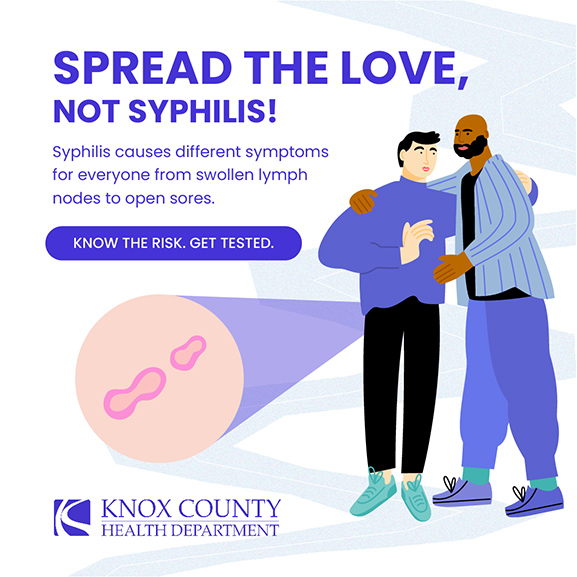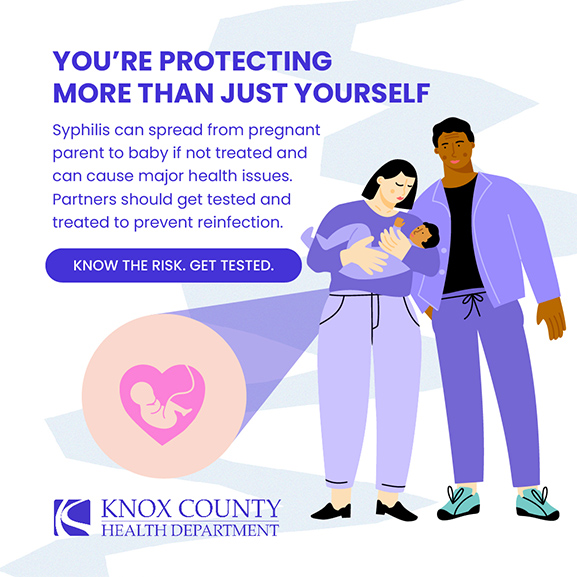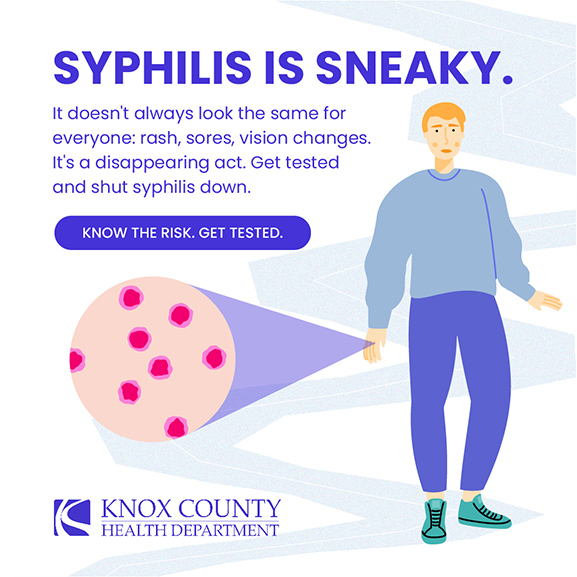Learn More about Sexually Transmitted Infections.
- You can get an STI through any type of sexual contact. STIs don't always cause symptoms or may only cause mild symptoms. When left untreated, STIs can affect your heart, brain, immune system, liver and bones.
- STIs can cause damage to your reproductive system making it harder to get pregnant. STIs can also be passed on to babies during pregnancy or delivery and have lifelong effects on their growth and development.
- STI rates in Tennessee and across the U.S. have been on a significant rise the past few years. Keep reading to learn how you can make a game plan to protect yourself and your partner(s) from STIs.
-
Common STI symptoms can include:
- Abnormal vaginal/penile discharge
- Burning with urination
- Rectal discharge or tenderness
- Abdominal pain
- Bleeding between periods
- Pain with sex
- Swollen lymph nodes
- Rashes or sores
- Burning with urination
- Rectal discharge or tenderness
- Pain with sex
- Abdominal pain
- Testicular tenderness
- Swollen lymph nodes
- Rashes or sores
-
While abstinence is the only way to guarantee you don't get an STI, there are several steps you can take to reduce your risks. Make a plan that's right for you using some of the tools below:
- Use condoms or other barriers.
- Reduce number of partners
- Talk with your partners.
- Get routine testing.
- Get vaccinated.
- Consider taking pre-exposure prophylaxis (PrEP) for HIV.
- If you inject or snort substances, never share equipment to prevent HIV and Hepatitis C infections.
On the first Wednesday of each month (excluding August), KCHD will open at 11 a.m. due to monthly in-service.






Click here to leave a comment or concern.